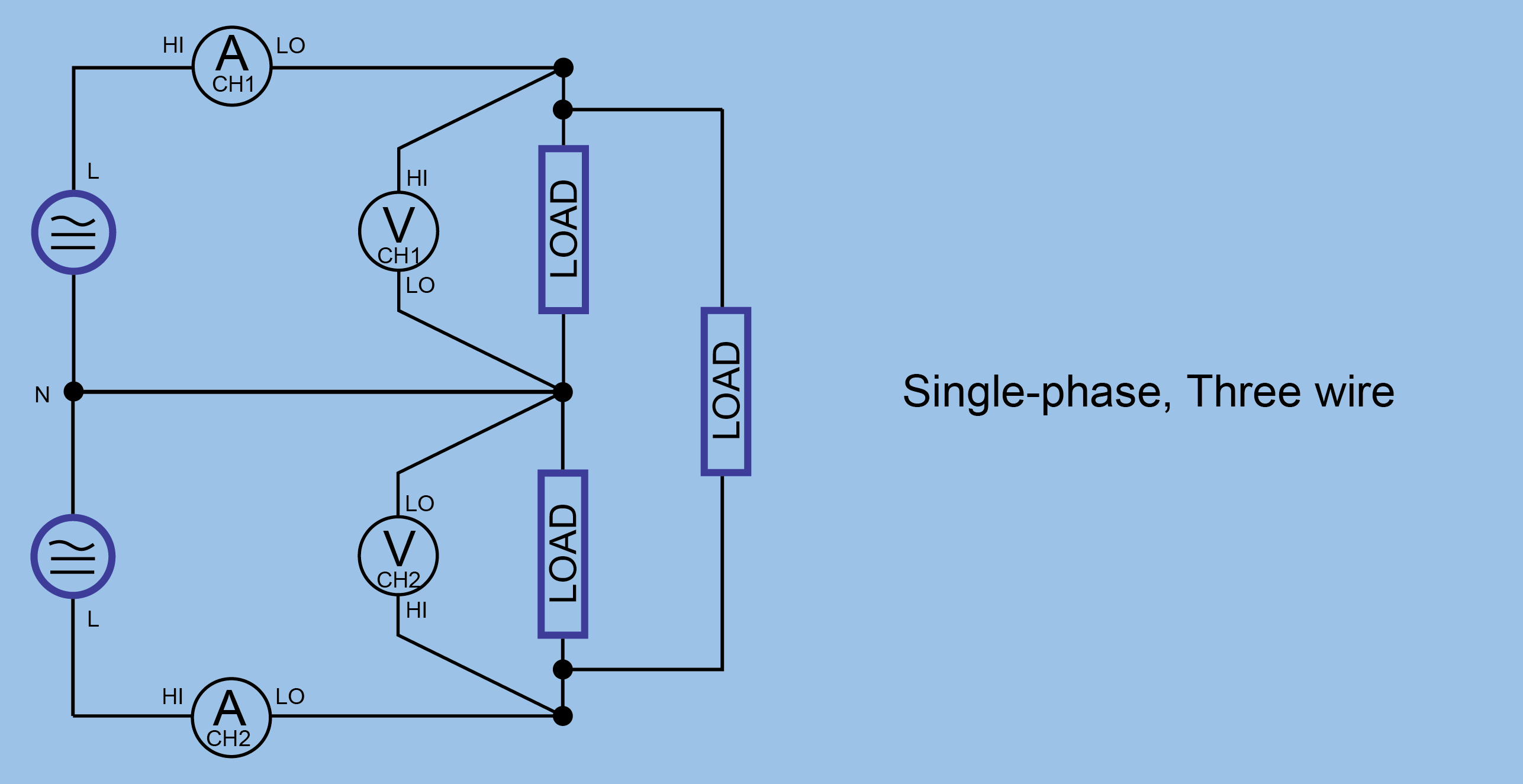
Question :
How many PA4000 input modules do I need to test various types of wiring configurations commonly found in single and three phase systems?
Answer :
Blondel's Theorem: Number of Watt-meters required;
In general, the Number of Watt-meters Required = the Number of wires - 1.
Single-phase, two-wire requires one current and one voltage connection.
For this measurement configuration you would order the PA4000 with Opt. 1CH

Single-phase, three-wire requires two current and two voltage connections.
For this measurement configuration you would order the PA4000 with Opt. 2CH

Three-phase, three-wire "delta", or "wye" two watt-meter method requires two current, and two voltage connections. (Will not measure power in each individual phase)
For this measurement configuration you would order the PA4000 with Opt. 2CH

Three-phase, three-wire, "delta", or "wye" three watt-meter method requires three current, and three voltage connections. (Low terminals for all watt-meters connected together, and will measure power in each individual phase)
For this measurement configuration you would order the PA4000 with Opt. 3CH

In some installations, loads are not perfectly balanced and a fourth neutral wire is used to carry the resultant current. The neutral conductor may be considerably smaller than the three main conductors, if allowed by local codes and standards.
For this measurement configuration you would order the PA4000 with Opt. 4CH
For a technical note describing the basic principles of three-phase systems, and the difference between the different measurement connections, please refer to "The Fundamentals of Three-Phase Power Measurements" Application note.
This FAQ Applies to:
No product series
Product:
FAQ ID 69166
View all FAQs »
